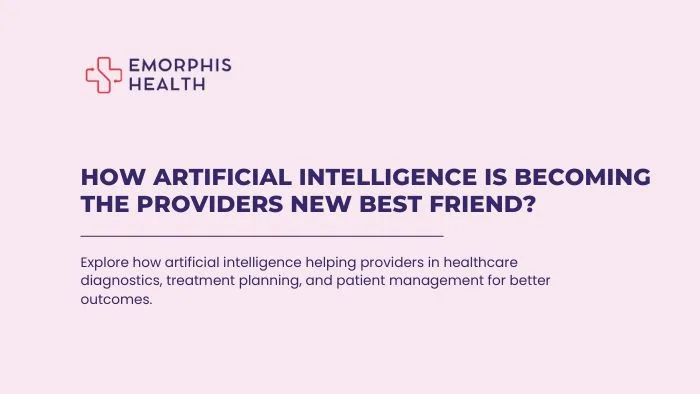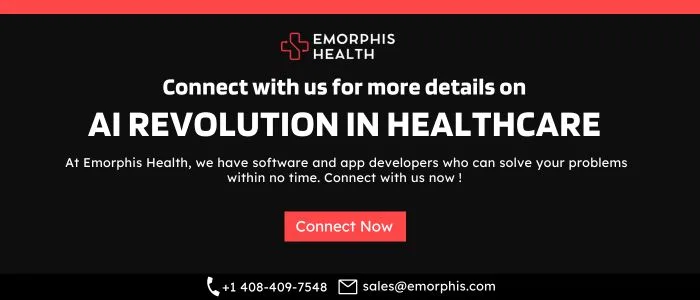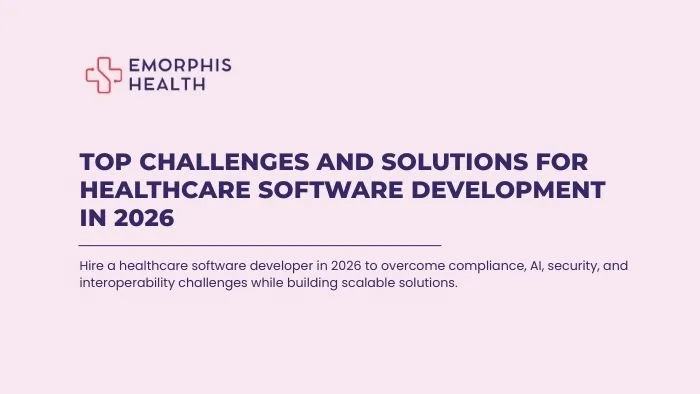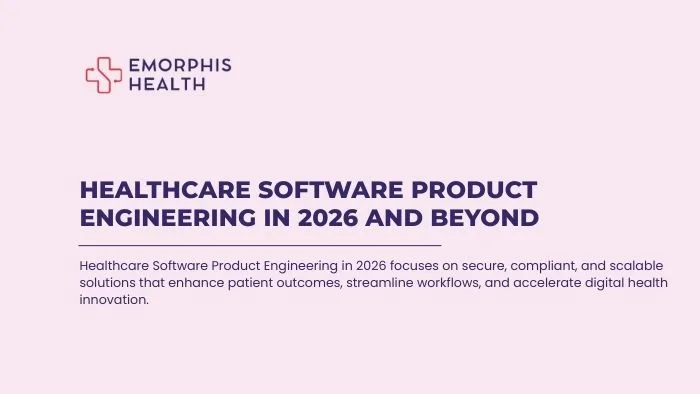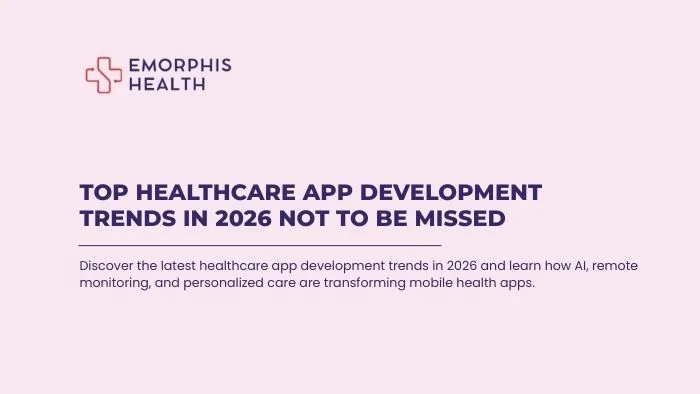What you will Learn in this Article?
See Contents
In this article, you will learn about the transformative role of artificial intelligence (AI) in healthcare, focusing on its impact across various domains such as diagnostics, treatment planning, medical imaging, surgery, patient management, and drug discovery. The article explores AI’s evolution in healthcare, its current applications, case studies highlighting its effectiveness, ethical and regulatory considerations, challenges, and future trends. It aims to comprehensively understand how AI is revolutionizing modern medicine and enhancing patient care.
AI’s Transformative Role
Artificial intelligence (AI) has become a pivotal force in the evolution of modern healthcare, ushering in a new era of efficiency, accuracy, and improved patient outcomes. By leveraging machine learning algorithms, natural language processing, and big data analytics, AI has the potential to revolutionize how healthcare is delivered. From diagnosing diseases with unprecedented accuracy to personalizing treatment plans, AI is increasingly becoming the doctor’s new best friend.
The Need for AI
The healthcare industry faces numerous challenges, including rising costs, increasing patient loads, and a growing prevalence of chronic diseases. These pressures have made it imperative to find innovative solutions that can enhance healthcare delivery while maintaining quality and accessibility. AI addresses these challenges by automating routine tasks, assisting in complex decision-making, and enabling predictive analytics. As a result, healthcare professionals can focus more on patient care and less on administrative burdens.
The Evolution of AI in Healthcare
Historical Context
The roots of artificial intelligence can be traced back to the mid-20th century when early pioneers like Alan Turing and John McCarthy began exploring the concept of machines that could simulate human intelligence. Over the decades, AI research has progressed through various phases, from symbolic AI and expert systems to the rise of machine learning and deep learning in recent years.
Key Milestones
- 1950s-1960s: The inception of AI concepts and the development of early algorithms.
- 1970s-1980s: During the 1970s and 1980s, expert systems emerged with the goal of emulating the decision-making abilities of human experts.
- 1990s-2000s: The advent of machine learning, allowing computers to learn from data and improve over time.
- 2010s-present: The rise of deep learning and neural networks, significantly enhancing AI’s capabilities in image and speech recognition, natural language processing, and more.
Healthcare Adoption
AI’s integration into healthcare has been gradual but impactful. Initially, AI applications were restricted to tasks involving administration and the management of data. However, advancements in computational power and the availability of large datasets have enabled AI to take on more complex roles. Today, AI is used in diagnostics, treatment planning, medical imaging, surgery, patient management, and drug discovery, among other areas. This evolution reflects a growing recognition of AI’s potential to enhance every aspect of healthcare, ultimately leading to better patient outcomes and more efficient healthcare systems.
Top Cases where Artificial intelligence is Helping in Healthcare
1. AI in Diagnostics

Diagnostic Tools
- Artificial intelligence has significantly enhanced diagnostic accuracy through the development of sophisticated diagnostic tools. These tools utilize machine learning algorithms to analyze extensive volumes of medical data, detecting patterns and irregularities that may go unnoticed by human observers. For example, AI can analyze medical images such as X-rays, MRIs, and CT scans to detect diseases at early stages, often with greater precision than traditional methods.
- AI in Radiology: Tools like Google’s DeepMind and IBM’s Watson have been trained on millions of medical images, enabling them to identify conditions such as tumors, fractures, and infections with high accuracy.
- Pathology: AI systems can examine biopsy samples, identifying cancerous cells and other pathological changes with a high degree of accuracy, often assisting pathologists in making more accurate diagnoses.
Case Studies
Case Study 1: Detecting Lung Cancer
In 2020, a study published in Nature Medicine demonstrated that an AI model developed by Google Health could detect lung cancer in CT scans with a higher degree of accuracy than a panel of expert radiologists. The AI model was trained on thousands of images and could identify subtle signs of cancer, leading to earlier and potentially life-saving interventions.
Case Study 2: Identifying Diabetic Retinopathy
Diabetic retinopathy, a leading cause of blindness, can be detected early with AI. Google’s AI tool, approved by the FDA in 2018, analyzes retinal images to identify signs of the disease. In clinical trials, this tool matched the performance of ophthalmologists, enabling early diagnosis and treatment.
Benefits Over Traditional Methods
AI’s diagnostic capabilities offer several advantages over traditional methods:
- Speed: AI can analyze data and provide results much faster than human practitioners, allowing for quicker diagnoses and treatment decisions.
- Accuracy: AI algorithms can identify patterns and anomalies that might be overlooked by humans, reducing the risk of misdiagnosis.
- Consistency: AI provides consistent results, unaffected by factors such as fatigue or human error.
- Scalability: AI systems can analyze large volumes of data simultaneously, making them ideal for high-demand environments such as hospitals and diagnostic centers.
Artificial Intelligence is transforming diagnostics by harnessing its ability to analyze vast amounts of medical data with unprecedented accuracy. By interpreting complex patterns in medical images and pathology samples, AI enhances diagnostic speed and precision, often surpassing human capabilities. Hence, it’s helping providers become more accurate and efficient in diagnosing diseases.
2. AI in Treatment Planning
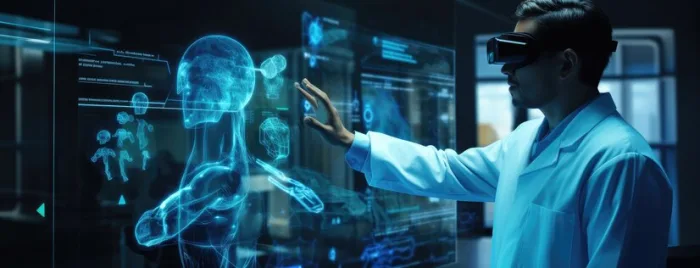
Personalized Medicine
One of AI’s most promising applications in healthcare involves creating personalized treatment plans. By analyzing an individual’s genetic makeup, lifestyle, and health history, AI can recommend tailored treatment strategies that are more likely to be effective.
- Genomic Data: AI algorithms can process genomic data to identify mutations and suggest targeted therapies, particularly in the treatment of cancers. This approach is commonly referred to as precision medicine.
- Patient Monitoring: AI can continuously monitor patient data from wearable devices and electronic health records (EHRs), adjusting treatment plans in real-time based on changes in the patient’s condition.
Predictive Analytics
AI’s predictive capabilities enable healthcare providers to foresee potential complications and adjust treatment plans accordingly. Predictive analytics can help in managing chronic diseases, predicting patient outcomes, and reducing hospital readmissions.
- Chronic Disease Management: In Chronic Disease Management, AI models have the capability to forecast flare-ups in chronic conditions like diabetes or heart disease, facilitating timely interventions.
- Surgical Outcomes: AI can analyze pre-operative data to predict surgical outcomes and potential complications, helping surgeons plan more effectively.
Application Examples
Example 1: Oncology
In oncology, AI is used to analyze genetic information and identify the most effective treatment protocols for individual patients. For instance, IBM Watson for Oncology uses natural language processing to review medical literature and provide evidence-based treatment recommendations.
Example 2: Cardiology
AI assists cardiologists by analyzing data from EHRs, wearable devices, and diagnostic tests to create personalized treatment plans for patients with heart disease. Tools like AliveCor’s KardiaMobile use AI to detect abnormal heart rhythms, allowing for early intervention and tailored treatment.
Artificial Intelligence is revolutionizing treatment planning by enabling personalized medicine based on individual patient data and predictive analytics. By analyzing genetic profiles, medical histories, and real-time patient data, AI suggests tailored treatment strategies that maximize efficacy and minimize risks. Hence, it’s helping providers craft precise and personalized treatment plans.
3. AI in Medical Imaging

Advancements
AI has revolutionized medical imaging by enhancing the quality and accuracy of images and providing tools for better analysis and interpretation. Advanced algorithms can detect minute details in images, aiding in early diagnosis and treatment.
- Image Enhancement: Artificial intelligence has the capability to enhance the resolution and clarity of medical images significantly, thereby facilitating easier identification of abnormalities.
- 3D Imaging: AI technologies enable the creation of detailed 3D models from 2D images, providing a more comprehensive view of the patient’s anatomy.
Radiology and Pathology
Artificial intelligence has had a profound impact on radiology and pathology. In radiology, AI tools assist in interpreting imaging studies, identifying potential issues faster and with greater accuracy. In pathology, AI helps in the analysis of tissue samples, identifying cancerous cells and other abnormalities with high precision.
- Early Detection: AI-powered imaging tools can detect diseases such as cancer, cardiovascular diseases, and neurological conditions at earlier stages than traditional methods.
- Diagnostic Support: AI provides radiologists and pathologists with decision support, helping them make more accurate diagnoses.
Case Examples
Example 1: Breast Cancer Detection
AI algorithms have been developed to analyze mammograms and identify early signs of breast cancer. Studies have shown that these algorithms can match or exceed the diagnostic accuracy of experienced radiologists, potentially leading to earlier detection and better patient outcomes.
Example 2: Neurological Disorders
AI is used in the analysis of brain scans to detect neurological disorders such as Alzheimer’s disease. Early detection through AI can lead to timely interventions that slow disease progression and improve quality of life.
Artificial Intelligence is reshaping medical imaging through advanced algorithms that enhance image quality and automate analysis. By detecting subtle anomalies and providing detailed insights from imaging studies, AI supports radiologists and pathologists in making more informed decisions. Hence, it’s helping providers achieve more accurate and timely diagnoses.
4. AI in Surgery

Robotic Surgery
Robotic-assisted surgeries have been significantly enhanced by AI, providing greater precision and control. AI-driven robots can perform complex procedures with minimal invasiveness, reducing recovery times and improving surgical outcomes.
- Da Vinci Surgical System: One of the most well-known robotic surgery systems, enhanced with AI capabilities to assist surgeons in performing precise movements.
- Minimally Invasive Procedures: AI enables robots to perform surgeries through small incisions, leading to quicker recovery and less postoperative pain.
Surgical Planning
AI helps in pre-surgical planning by analyzing patient data and imaging studies to create detailed surgical plans. This planning improves the precision of surgeries and reduces the risk of complications.
- 3D Modeling: AI creates 3D models of the patient’s anatomy, allowing surgeons to plan and rehearse procedures in a virtual environment.
- Risk Assessment: AI predicts potential risks and complications, enabling surgeons to prepare and mitigate these issues during surgery.
Post-Operative Care
AI plays a crucial role in post-operative care by monitoring patients and predicting complications. AI-driven systems can analyze data from various sources, such as wearable devices and EHRs, to provide real-time insights into patient recovery.
- Predictive Monitoring: AI continuously monitors vital signs and other health metrics, alerting healthcare providers to potential issues before they become critical.
- Rehabilitation Support: AI provides personalized rehabilitation plans and tracks patient progress, ensuring optimal recovery.
Artificial Intelligence is enhancing surgical outcomes by powering robotic-assisted surgeries and aiding in pre-operative planning. By enabling precise movements and real-time insights during procedures, AI reduces risks and improves patient recovery. Hence, it’s helping providers perform surgeries with unprecedented precision and safety.
5. AI in Patient Management

EHR Integration
AI enhances electronic health records (EHR) systems by making them more intuitive and useful for healthcare providers. AI can organize and analyze EHR data, providing actionable insights that improve patient care.
- Data Analysis: AI analyzes patient data to identify trends, predict outcomes, and recommend treatments.
- Workflow Optimization: AI streamlines administrative tasks, reducing the burden on healthcare providers and allowing them to focus more on patient care.
Virtual Assistants
AI-driven virtual health assistants and chatbots are becoming increasingly common, providing patients with 24/7 access to medical advice and support. These virtual assistants can answer questions, schedule appointments, and provide reminders for medication and follow-up visits.
- Symptom Checkers: AI-powered chatbots can help patients understand their symptoms and suggest possible courses of action.
- Patient Education: Virtual assistants provide information on medical conditions, treatments, and preventive care, empowering patients to make informed decisions.
Patient Engagement
AI tools improve patient engagement by providing personalized health recommendations and reminders. These tools encourage patients to adhere to treatment plans, attend follow-up appointments, and make healthier lifestyle choices.
- Personalized Health Plans: AI creates customized health plans based on individual patient data, promoting better health outcomes.
- Adherence Monitoring: AI tracks patient adherence to medications and treatment plans, sending reminders and alerts as needed.
Artificial Intelligence is optimizing patient management through integrated electronic health records (EHR) and virtual health assistants. By analyzing patient data, facilitating communication, and promoting adherence to treatment plans, AI enhances patient care coordination and engagement. Hence, it’s helping providers provide continuous and personalized care to their patients.
6. AI in Drug Discovery and Development

Accelerated Development
AI accelerates the drug discovery process by analyzing large datasets to identify potential drug candidates more quickly and accurately than traditional methods. AI can predict how different compounds will interact with targets, reducing the time and cost of drug development.
- Compound Screening: AI screens millions of compounds to identify those with the highest potential for effectiveness and safety.
- Predictive Modeling: AI models predict the efficacy and side effects of new drugs, guiding researchers in their development efforts.
Clinical Trials
AI improves the design and management of clinical trials, making them more efficient and effective. AI can identify suitable candidates, predict outcomes, and monitor trial progress in real time.
- Patient Recruitment: AI analyzes patient data to identify individuals who meet the criteria for clinical trials, speeding up the recruitment process.
- Trial Management: AI monitors patient responses and side effects during trials, providing real-time data to researchers and ensuring safety and compliance.
Success Stories
Story 1: AI-Discovered Antibiotic
In 2020, researchers at MIT used AI to discover a new antibiotic called halicin, which is effective against many drug-resistant bacteria. AI analyzed millions of chemical compounds to identify this new drug, showcasing its potential to revolutionize drug discovery.
Story 2: AI in Oncology Drug Development
AI has been used to develop personalized cancer treatments by identifying genetic mutations and tailoring therapies to target them. Companies like Tempus and GRAIL are leveraging AI to accelerate the development of oncology drugs, improving patient outcomes.
Artificial Intelligence is accelerating drug discovery by streamlining screening processes and predicting drug interactions. By analyzing vast datasets and simulating biological processes, AI identifies potential drug candidates faster and with greater accuracy. Hence, it’s helping providers innovate in pharmaceutical research and develop more effective treatments.
What Providers Can’t Ignore With Artificial Intelligence?
A. Ethical and Regulatory Considerations
The rapid integration of AI in healthcare raises ethical concerns, such as algorithmic bias and patient data privacy. Regulatory frameworks are crucial to ensure AI’s safe and ethical use, with a focus on transparency and patient consent.
Challenges and Limitations
AI adoption in healthcare faces hurdles like data quality, system integration, and algorithmic biases. Addressing these challenges requires robust training for healthcare professionals and ongoing validation of AI systems.
The Future of AI in Healthcare
AI holds immense promise in healthcare, enhancing diagnostics, treatment personalization, and global health initiatives. Future advancements in AI, including IoT integration and NLP, will further revolutionize medical practice, improving patient outcomes and operational efficiency.
Conclusion
AI is transforming healthcare by enabling faster, more accurate decision-making. Achieving AI’s full potential requires navigating ethical issues, overcoming technical challenges, and ensuring equitable access to AI technologies.

